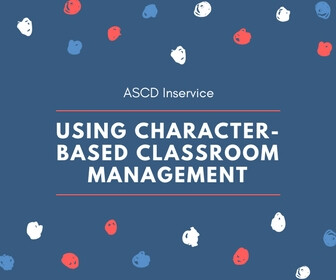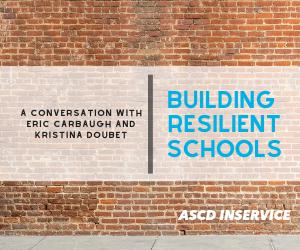It’s no secret that teachers go above and beyond to support their students, each other, and their communities, addressing complex issues that impact education daily. Teachers’ dedication to solving tricky or persistent challenges is apparent in the Teach to Lead (TTL) initiative, where teams of teachers volunteer to participate in summits and create plans to address the challenges they’ve identified in their schools or districts.
Yet too often, the burden falls on teachers to take on every part of this process—from identification to designing solutions to keeping colleagues engaged long-term. However, even the most supportive leaders and community members sometimes struggle to determine how to truly support their teachers.
During the Spring 2021 Teach to Lead Summit for veteran teams—teams that have previously attended a TTL summit and begun implementing their projects—our organizations (ASCD and the American Institutes for Research) discussed the current state of teacher-led projects and what we can do to best support teachers and show appreciation for their efforts to make the world a better place.
Here are some of the main takeaways:
Care goes both ways
Teachers show up for everyone—for students, for families, for each other—and are held to a high standard in their communities. It’s easy to talk about how teachers have a unique, on-the-ground perspective of the challenges students face and how teachers work from a place of deep care, but it is also important for communities to reciprocate and show care for their teachers (and not just during Teacher Appreciation Week!).
The public is finally hearing more about what teachers need to be successful, including work-life balance, time for self-care, and opportunities for personal and professional growth. One of the best things we can do for teachers is temper our expectations and give them time to rest, recover, and refresh so they can continue to show up for their communities every day. For example, check out ASCD’s resource “Five Strategies for Teacher Self-Care” and the GTL Center’s resources on resilience and self-care for educators.
Many persistent challenges have realistic solutions
One of the consistent focal points of Teach to Lead projects is equity, which can seem an impossible problem to solve; however, all teachers walk away from Teach to Lead Summits with concrete, immediate actions and solutions they can implement in the classroom. These teachers don’t believe they can solve everything at once, yet that doesn’t stop them from imagining and striving to solve what they can address in the short-term. Instead of simply requesting teachers’ input on solutions to big challenges (or worse, making decisions without teacher input), school leaders can show appreciation and respect for teacher expertise by actively engaging teachers in problem-solving and decision-making. To facilitate this, leaders can show teachers appreciation and respect by giving them the time, space, and support to brainstorm and develop solutions collaboratively.
Teachers need simple but concrete supports
While more money and time are always helpful, teachers don’t necessarily need extra resources to achieve big things. One easy and attainable support all teachers can benefit from is direct leadership support. Too often, leaders are supportive of teachers’ projects or goals but do not offer anything beyond their approval (recognition but not action). When possible, education leaders should invest in teachers in big and small ways to actively support and further their work. Beyond financial investments, leaders can offer their influence by sharing their teachers’ work and success stories with others. How often, for instance, do leaders mention their teachers’ names when they are not in the room, especially when meeting with those in positions of greater power or influence? Leaders can also help by sharing teachers’ requests with wider networks, such as tweeting a link to a fundraising page for a teacher-led project. These concrete efforts do not cost leaders anything yet can make a major difference for the long-term support and sustainability of teacher-led projects. They can be particularly helpful, too, for novice teachers (see ASCD’s resource “New Teachers Need Emotional and Professional Support”).
With all that teachers offer to their students, colleagues, and communities, it is important to extend appreciation beyond a simple “thank you” and consider what we can do to directly support teachers’ work. After all, the time and energy we invest in teachers’ well-being and efforts to support their students are paid back in full to communities at large. Let’s extend our appreciation of teachers to concrete actions we can take now and every week from here on out.








